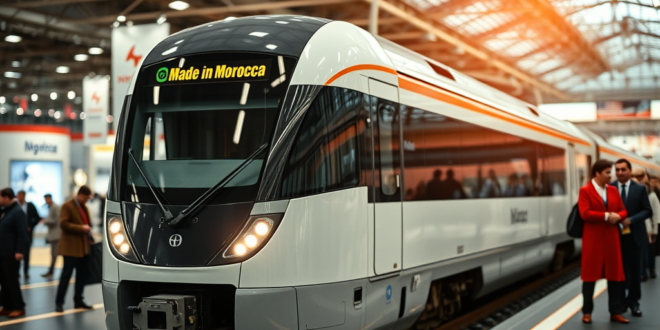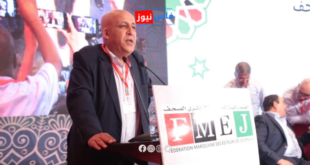Official sources have revealed that Morocco’s National Railways Office (ONCF) has awarded a contract to Spanish company “Ineco” to oversee the expansion of the railway network in the northern region of the kingdom, in a move aimed at strengthening transportation infrastructure in the area.
The project, which extends over 14 months, includes the construction of a new railway line connecting the cities of Tangier and Tetouan, as well as developing rail links to stadiums designated for hosting the 2030 World Cup and improving connectivity between Tangier city and its international airport.
The Spanish company will work in collaboration with its local partner, CID, to evaluate several strategic projects including:
- Expansion of the Tangier-Malloussa line
- Construction of a conventional line connecting southern Tangier with the sports stadium designated for the 2030 World Cup
- Development of rail links with Tangier Airport and neighboring industrial zones
This project comes as part of the National Railway Strategy (PRM2040), for which the Moroccan government has allocated a budget of 375 billion dirhams. This strategy aims to:
- Connect 43 cities via the railway network
- Link major airports and ports to the network
- Modernize the kingdom’s rail transport infrastructure
Ineco’s President, Sergio Vázquez Torrón, stated: “This contract represents our first railway project in Morocco and strengthens our presence in this promising market… It’s an important step that we hope will open more opportunities for us in the future.”
The selection of the Spanish company comes as a result of the distinguished bilateral relations between Morocco and Spain, and this partnership was further strengthened during the official visit of Spanish Minister of Transport and Sustainable Mobility, Óscar Puente, to Morocco, where he confirmed Spanish companies’ desire to enhance cooperation with their Moroccan counterparts in the transport sector.
It’s worth noting that this project represents a significant step in modernizing Morocco’s transport infrastructure and will contribute to improving connectivity between northern cities and facilitating the movement of passengers and goods in the region.
The project’s strategic importance extends beyond basic transportation needs, as it aligns with Morocco’s preparations for hosting the 2030 World Cup and supports the kingdom’s broader economic development goals. The enhanced rail network will serve both tourist and industrial needs, creating a more integrated transportation system in northern Morocco.
This initiative demonstrates Morocco’s commitment to developing world-class infrastructure and strengthens its position as a regional leader in transportation development. The collaboration with Ineco also highlights the growing international interest in Morocco’s infrastructure projects and the country’s ability to attract significant foreign expertise in its development initiatives.
 فاس نيوز ميديا جريدة الكترونية جهوية تعنى بشؤون و أخبار جهة فاس مكناس – متجددة على مدار الساعة
فاس نيوز ميديا جريدة الكترونية جهوية تعنى بشؤون و أخبار جهة فاس مكناس – متجددة على مدار الساعة













